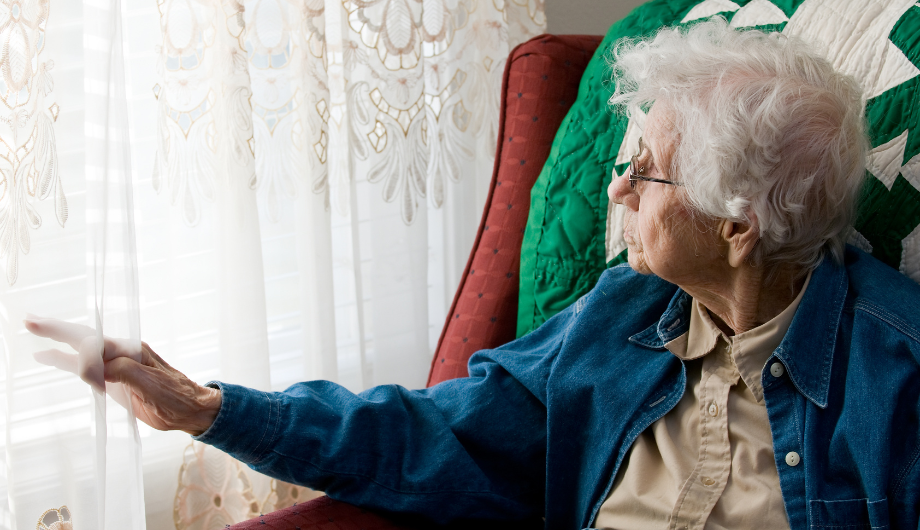In many ways, the impact of living with domestic abuse is the same for all victims – regardless of age. Everyone worries about not being believed, or having to live with the stigma of abuse. They worry about what will happen to them financially, if the abuse will get worse or what might happen to the perpetrator if they do speak out.
But for older victims, this fear can be exacerbated by a number of other factors. As professionals, being aware of these barriers allows us to better understand their fears and, as a result, take a more flexible and creative approach to support.
Older victims might not recognise what’s happening as abuse
It goes without saying that there is no ‘typical’ victim of abuse. But it’s normally younger women or families who are portrayed in leaflets, posters and campaigns. This is matched by a wider lack of services and resources which take into account the unique needs of older victims.
I’m not sure whether I knew I was experiencing abuse. It’s sometimes difficult to distinguish… it’s a very large word. There is financial, mental, verbal, economic and so much more. Some is invisible to the eye. Some has happened and some is still going on. It’s not always physical
They may be reluctant to talk about it
Generational attitudes towards relationships mean some older victims might accept the abuse as “the way it’s always been”. Older women may be from a time where it was not socially acceptable to talk about problems in their relationships; where women’s roles were confined to the home and divorce or separation were taboo.
This reluctance to talk about abuse can be exacerbated by victim-blaming among some professionals, which can be even more prevalent when a victim has lived with the abuse for a very long time. Too often, professionals make excuses for the abuser instead (“It can’t be that bad if she’s stayed with him that long”).
They don’t know about the help that’s available…
Services open and close so frequently, and the support that’s out there varies from one area to the next. If older people don’t have access to the internet or the skills to use modern technology, how will they know where to get help?
…Or have been let down in the past
If the abuse has been going on for a number of years, it’s likely that victims will have attempted to get help in the past. But if at every turn they fail to get the support they need, many may simply give up.
It took some time for me to access support. I started out by searching on the internet and I called several numbers. I was very isolated. It took a lot of persistence but eventually I found the Silver Project.
They may have health or mobility needs
Older women are statistically more likely than younger women to have health problems, reduced mobility or other disabilities which means their situation makes them more vulnerable to harm. This could also mean a loss of ability to communicate clearly if they’ve suffered a stroke, heart attack, have hearing loss or have experienced other chronic disorders. It could also mean they’re more isolated – both physically and socially.
Too often, professionals don’t consider domestic violence as an issue for older victims, and therefore don’t ask about it. They may assume that injuries, confusion, depression etc are the results of age-related conditions.
Another common barrier among those victims with health or mobility needs is that the perpetrator of the abuse is also their carer. This can lead them to become further isolated from friends, family and support. This is especially the case for victims who have depended on the perpetrator for much of their lives. They may also make threats to put the victim into a care home if they tell anyone about the abuse.
Family and friends aren’t supportive
Some adult children will be supportive of their parent and encourage them to leave or seek help. But others can create barriers by expecting women to stay, continuing to assume the carer role to an elderly father. The responsibility they place on themselves to be the carer of the abusive partner or child can also be too much.
They think it’s too late
We know that older victims are much more likely to live with abuse for prolonged periods of time. The thought of having to give up the home they’ve lived in for many years, leaving behind pets and treasured possessions, can be too much. After a lifetime of contributing to the family business, homes or other assets, many fear they will be left with nothing. And, too often, life can get in the way – the death of family or friends, birth of grandchildren, retirement, moving house – and victims can feel the time isn’t right to seek help.
Most of our lives have been settled, we would hope – working, raising a family, and so on… There is more emotion involved as you have a long history. There is just so much more at stake.
In her next blog, Monsura examines some of the additional risk factors facing older victims and offers tips on how professionals can best support them.
Throughout July and August, we’re focusing on domestic abuse as it affects older people.

